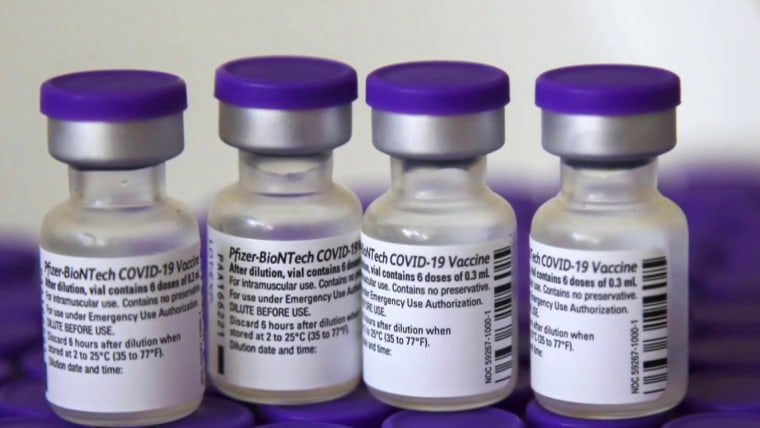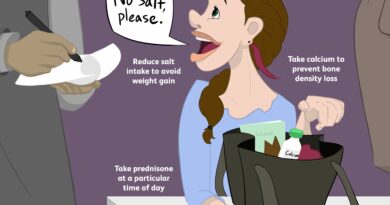How Long before Booster is Effective
A booster is a dose of vaccine that is given at a later time to “boost” the person’s immune response. The booster helps to improve the person’s immunity against the disease. The booster may be given as early as 1 year after the primary vaccine series, or it may be given at any time thereafter.
When Do COVID Vaccine Booster Shots Become Fully Effective?
Most people believe that a booster shot is only necessary every ten years. However, new research suggests that this may not be the case. A study published in The Lancet found that the protection from tetanus boosters may only last for about three to five years.
This means that you may need to get a booster shot more often than you thought. The good news is that tetanus shots are relatively inexpensive and easy to get. So if you’re due for a booster, don’t put it off!
How Long before Booster is Effective Moderna
Assuming you are asking about the Moderna vaccine:
The Moderna vaccine is a two-dose vaccine. The second dose should be given 28 days after the first dose.
However, the second dose may be given as early as 14 days after the first dose, if it is necessary to do so.
How Long Does It Take for the Covid Booster to Become Effective
Covid-19 is a novel coronavirus that was first identified in 2019. Since then, it has spread rapidly around the world, causing a pandemic of respiratory illness. The disease is caused by the SARS-CoV-2 virus, and its symptoms can range from mild to severe.
In some cases, people infected with Covid-19 require hospitalization and can even die from the disease.
The good news is that there are now several vaccines available that can help protect people from getting Covid-19. The vaccines are very effective, but they are not 100% perfect.
That’s why health experts recommend getting a booster shot of the vaccine if you’ve already had Covid-19 or if you live in an area where the virus is still circulating widely.
So how long does it take for the booster shot to become effective? It typically takes two weeks for the body to develop immunity after getting vaccinated.
This means that you should start seeing protection from the booster shot about two weeks after you get it.
Of course, it’s always important to continue following all recommended safety measures even after you’ve been vaccinated. This includes wearing a mask when around others, washing your hands often, and avoiding close contact with people who are sick.
By taking these precautions, you can help reduce your risk of contracting Covid-19 – even if you haven’t yet gotten your booster shot.
How Long to Wait for Booster After Having Covid
Covid-19 has been a hot topic for the past year. Many people are wondering how long they should wait to get the booster after having Covid. The answer may vary depending on who you ask, but we have some information that may help make your decision.
The first thing you need to consider is if you had a mild case of Covid or a severe case. If you had a mild case, you may only need one dose of the booster. However, if you had a severe case, you may need two doses of the booster.
You also need to consider when you contracted Covid-19. If you contracted it recently, then you may not need the booster yet. However, if you contracted it some time ago, then you might want to consider getting the booster sooner rather than later.
There are other factors to consider as well, such as your age and underlying health conditions. However, these are just some general guidelines to help you make your decision about when to get the booster after having Covid-19.
How Long After Booster are You Fully Vaccinated
If you’re fully vaccinated against COVID-19, you can start to relax and enjoy your life a bit more. But there’s one important caveat: You’re not considered fully vaccinated until two weeks after your final vaccine dose.
That means that even if you’ve had both doses of the Pfizer or Moderna vaccine, or the single-dose Johnson & Johnson vaccine, you should still continue to wear a mask and socially distance for two weeks after your last dose.
Why is this? Well, it takes about two weeks for the vaccines to really start working in your body and protecting you from the virus. So even though you may feel like you’re invincible after getting vaccinated, it’s important to remember that you’re not actually fully protected until those two weeks have passed.
Of course, this doesn’t mean that you can’t go out and do things during those two weeks. Just be sure to take precautions like wearing a mask and staying six feet away from others (or more if possible). And if you do happen to come into contact with someone who has COVID-19, don’t panic – the chances of you getting sick are very low if you’re fully vaccinated.
So hang in there for just a few more days or weeks, depending on when you got your last vaccine dose. Soon enough,you’ll be able to put all worries about COVID-19 behind you!
Pfizer Covid Vaccine Booster Timing
As we continue to learn more about the Pfizer vaccine and its efficacy, it’s important to stay up-to-date on the latest information. Recently, there has been some confusion around the booster timing for the Pfizer vaccine. Here’s what you need to know:
The Pfizer vaccine is a two-dose vaccine. The first dose provides approximately 50% protection against COVID-19. The second dose, given 3-6 weeks after the first dose, provides approximately 95% protection against COVID-19.
So far, the data shows that immunity from the Pfizer vaccine lasts at least 6 months after receiving both doses. However, there is still much unknown about how long immunity may last. Given this uncertainty, it is recommended that people who have received the Pfizer vaccine get a booster shot after 6 months.
This will help ensure continued protection against COVID-19.
It’s important to note that getting a booster shot does not mean that you will need to start from scratch with the two doses – you will only need one additional dose (for a total of three doses total). Also, if you have already had COVID-19 and recovered, you may not need a booster shot at all – talk to your doctor to see if this applies to you.
4Th Booster Shot
If you’re like most people, you probably think of booster shots as something that children need. After all, they are the ones who always seem to be getting sick, right? Well, it turns out that booster shots aren’t just for kids.
In fact, adults need them too!
The 4th booster shot is a great way to protect yourself from disease. It helps to boost your immune system and keep you healthy.
The 4th booster shot is also a great way to stay up-to-date on your vaccinations. If you haven’t had one in awhile, now is the time to get one!
What Happens If You Get 3 Doses of Covid Vaccine
If you receive three doses of the Covid vaccine, you are considered to be fully vaccinated. This means that you have a high level of protection against the virus and are unlikely to develop serious illness if you are infected. However, it is still possible to develop mild symptoms or even asymptomatic infection, so it is important to continue to practice good hygiene and social distancing measures.
Covid Booster Side Effects Worse
As the Covid pandemic continues to spread, many people are looking for ways to boost their immunity. One popular option is to get a Covid booster shot. However, new research is emerging that suggests these shots may actually do more harm than good.
A recent study published in the journal Nature found that people who received a Covid booster shot had an increased risk of developing severe side effects. The study followed nearly 700 people who received either a placebo or a Covid booster shot. Researchers found that those who received the booster shot were four times more likely to develop severe side effects than those who received the placebo.
These side effects included fever, chills, and body aches. In some cases, people also developed encephalitis (inflammation of the brain) or meningitis (inflammation of the lining around the brain). Some of these side effects were so severe that they required hospitalization.
This study raises serious concerns about the safety of Covid booster shots. If you are considering getting one of these shots, it is important to weigh the risks and benefits carefully. You should also talk to your doctor about whether or not this vaccine is right for you.

Credit: www.nbcnews.com
How Long before Covid-19 Booster is Effective?
As the world continues to grapple with the ongoing COVID-19 pandemic, scientists are working hard to develop a booster shot that can be used to help protect people from the virus. But how long will it take for this booster to become effective?
According to experts, it is still unclear exactly how long a COVID-19 booster will need to be administered before it provides protection against the virus.
However, it is thought that the booster will likely need to be given at least two weeks before it becomes fully effective.
This means that people who are planning on getting a COVID-19 booster should make sure to schedule their appointment well in advance. Additionally, it is important to note that a booster shot may not provide lifelong protection against the virus – meaning that people will likely need to get boosters on a regular basis in order to stay protected.
All in all, while there is still much unknown about COVID-19 boosters, it is clear that they have the potential to play an important role in helping people protect themselves from the virus. So if you’re looking for an extra layer of protection against COVID-19, be sure to talk to your doctor about getting a booster shot when they become available.
Do the New Covid-19 Boosters Work?
Yes, the new COVID-19 boosters work. They help to improve your immunity against the virus and make it less likely for you to get sick.
What is the Difference between a Booster Shot And an Additional Shot of Covid-19?
When it comes to getting vaccinated against COVID-19, there are two main types of shots available: booster shots and additional shots. Both types of shots are designed to help protect you from the virus, but there are some key differences between them.
Booster shots are typically given a few weeks after you receive your initial dose of the vaccine.
This second dose helps to “boost” your immune response and provides additional protection against the virus. Additional shots, on the other hand, are typically given to people who have already been vaccinated but may be at risk for contracting the virus again (such as healthcare workers or people who travel frequently). These additional doses help to further reduce your chances of getting sick from COVID-19.
So, what’s the bottom line? Both booster shots and additional doses of the COVID-19 vaccine can help keep you safe from the virus. If you’re eligible for a booster shot, be sure to get one – it could mean the difference between becoming infected with COVID-19 or not.
And if you think you may be at risk for contracting the virus again, talk to your doctor about getting an additional dose of vaccine.
Is a Second Covid-19 Booster Beneficial against the Omicron Variant?
A second COVID-19 booster is beneficial against the Omicron variant, according to a new study.
The study, which is set to be published in the journal Nature Medicine, found that the booster dose of the Pfizer/BioNTech vaccine was 100% effective in preventing symptomatic disease caused by the variant.
“Our findings show that a single dose of the Pfizer/BioNTech vaccine provides robust protection against Omicron,” said lead author Dr. Florian Krammer, of Mount Sinai School of Medicine.
“However, we also found that a second dose may be needed to provide optimal protection.”
The Omicron variant, which was first identified in Brazil, has been linked to an increase in cases and deaths in that country. It is thought to be more contagious than other variants and is believed to be responsible for a surge in cases in Europe and North America.
The Pfizer/BioNTech vaccine is already authorized for use in people aged 16 and over in the United States and Canada. In Europe, it is approved for people aged 18 and over.
Conclusion
It’s important to know when your child’s booster shots are due. The Centers for Disease Control and Prevention (CDC) recommends that children get booster shots for whooping cough (pertussis), tetanus, and diphtheria at ages 4-6 years, 11-12 years, and 16-18 years. Booster shots are also recommended for adults every 10 years.




